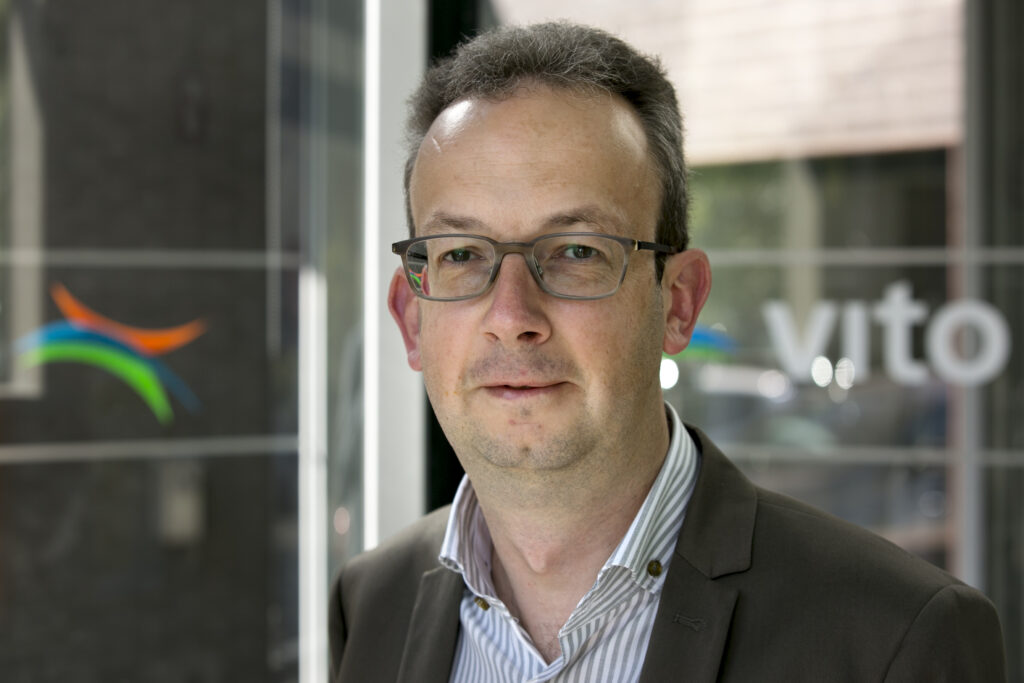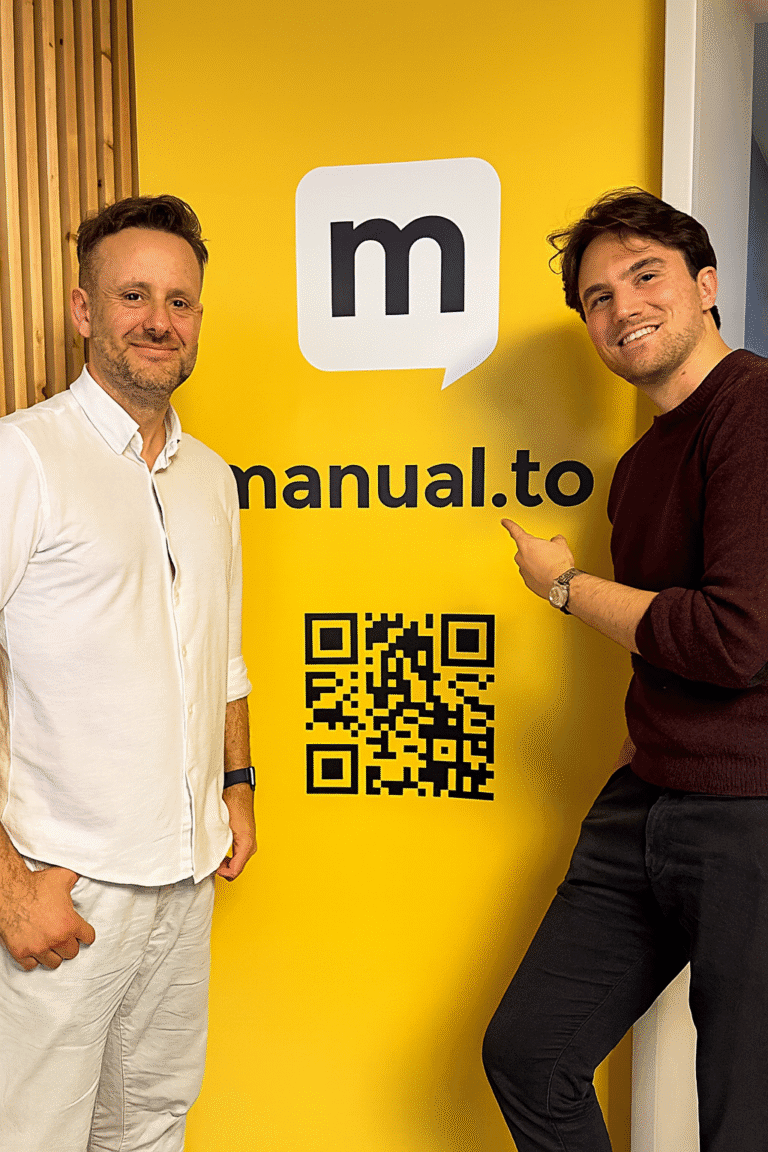Peter Vercaemst (VITO): “Logistics plays vital role in transition to circular economy”

“Logistics is a crucial component in any value chain. It will therefore play an essential role in the transition to a more circular economy. However, the activities of logistics companies will not be the same as today.” Says Peter Vercaemst, former Unit Manager Sustainable Materials and current deputy CEO at VITO, the Flemish Institute for Technological Research.
VITO – from the beginning a Supporting Partner of Log!Ville – is an independent research centre focusing on sustainable technological innovations. It is active in various fields, such as energy, climate, raw materials, health, and environment. It operates at the intersection of science, technology and industry and works with both government and industry to make the shift to a circular economy.
But what is a circular economy? “A circular economy is one in which the value of a product or service remains as long and as high as possible. There are several strategies for this. The most important is to provide for the longest possible lifespan when designing and manufacturing itself. The opposite of the programmed obsolescence of – say – white goods, smartphones and the like. Longevity can also be extended by ensuring that a product can easily be repaired, by using screws and bolts rather than gluing, for example.
Another option is to enable ‘remanufacturing’ or ‘refurbishing’ to give a product more than one life, and to recycle if a product is ‘end of life’ to still get the remaining value out of it. This assumes that it is designed in such a way that all parts can be recycled properly and easily, which is also often a problem today,” explains Peter Vercaemst.
Roadmap for circular logistics
In those various aspects of a circular economy, logistics plays a vital role, he says. “In all sectors, logistics is a crucial part of the value chain. In other words, those sectors will not be able to make the transition if logistics does not support them in it. This is why VITO has been working for years with VIL in projects aimed at more sustainable logistics, which resulted, among other things, in a roadmap for circular logistics,” says Peter Vercaemst.
He acknowledges that many companies in Flanders are already struggling to make the shift to more sustainable logistics, let alone to radically change their operations toward circular economy. “The economic aspects – understandably – quickly take precedence over the ecological ones. Is circularity too high for them? Today in many cases: yes. However, you also have to think longer term, and you must create scale to strengthen the dynamic.
Through VITO’s collaboration with VIL, we can help the logistics sector move forward to support the other sectors in their transition. By the way: many companies – including medium-sized and even smaller ones – are increasingly concerned with sustainability because their clients ask them to, or because new regulations such as CSRD (Corporate Sustainability Reporting) require them to” he states.
Linear economy with a plan
“Logistics companies are therefore increasingly considering the sustainability of their operations. In investment decisions, electrification, an efficient last mile or a switch to intermodal transport come into play more often than before. So for now, it’s about greening their activity and circularity is a fact that comes into play more in the longer term,” he says.
“In se, logistics is evolving at a similar pace as societal changes. A circular economy is something for the long term. In the short term – until 2030 – we are evolving to what I call ‘a linear economy with a plan.’ So in that context, you have to think carefully about the direction you want to take and how you can create more value. A good example is the concept that VIL developed and VITO participated in with the ‘Flanders Recycling Hub’ project,” he adds.
Within this concept, our Flemish ports would become logistics hubs for the sorting, processing and – preferably – ‘upcycling’ of international waste flows to specialized recycling facilities in the hinterland.
Recycling as a stepping stone
Peter Vercaemst admits that recycling is really only the capstone of a circular economy and not the core. “But it is also the stepping stone to a more circular economy, in the sense that concrete initiatives in this area are starting a movement at different levels and in different time phases.”
“A circular economy presumes rethinking technologies and working out new business models. That has an impact on logistics anyway. In that first phase, the importance of return logistics will grow exponentially, as will that of bundling waste streams. New cooperation models must be devised which can be used to maximize the value of residual products,” he states.
Added value in the circular economy
“For developing and producing goods and materials with a much longer lifespan, the producer is responsible. He must also maximize reparability. Should he repair the products himself? Not necessarily. He can also use a logistics company to pick up and repair the products, or refurbish them. This is already happening, for example with modems that are upgraded and/or updated at the end of the contract and put back into circulation. Logistics companies can thus act in the supply chain – both upstream and downstream – by offering new value-added services, working out new business models thus also seizing additional economic opportunities.”
“Logistics companies themselves, moreover, can play an active role by offering new services that support producing companies in their transition. In other words, logistics plays a key role in the transition to first a sustainable and then a (more) circular economy,” Peter Vercaemst adds.
Risk of ‘degrowth’
Critics sometimes argue that the circular economy is a down economy and that ‘degrowth’ can occur. As products last longer, consumption falls and manufacturing companies are negatively impacted. “In part that is true, in that we are partly dealing with a different economy. However, there are also new activities coming along that require different skills, for example in repairing or installing new software in smart washing machines,” he says.
“By the way, one should not be blinded by circularity. Even sustainably designed products can become obsolete prematurely, for example, when a refrigerator is energetically outdated. There will always be a trade-off: can I still upgrade the product or is it not worth it? Even in that situation: if you do have to write off a product before it reaches its end of life, you can still make sure that as much value as possible is extracted from it.”
Evolution is already in motion
So a more circular economy will have an impact on logistics, in that it will require less supply of raw materials and fewer products to be transported. “But will that reduce the need for logistics? I don’t think so. Flows will change and new tasks will require new business models. By the way: that evolution – regardless of the creation of a circular economy – is underway. The Covid crisis and the Suez Canal blockade showed us that we are too dependent on global supply chains. The energy crisis added to that awareness. These events prompted many companies to rethink their organization and business model,” says Peter Vercaemst in conclusion.
VITO
Would you like to know more about our Supporting Partner VITO? Follow this link for more info.



